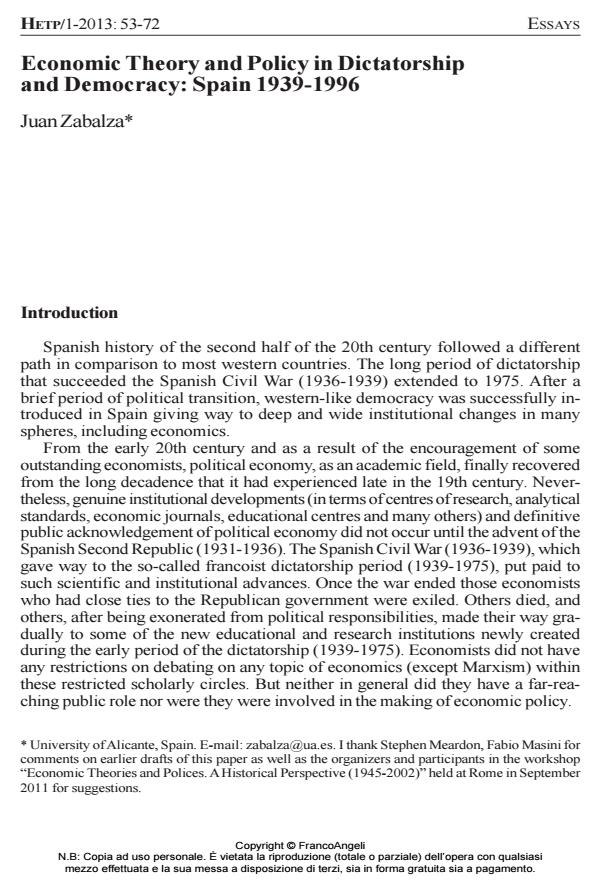Economic Theory and Policy in Dictatorship and Democracy: Spain 1939-1996
Journal title HISTORY OF ECONOMIC THOUGHT AND POLICY
Author/s Juan Zabalza
Publishing Year 2013 Issue 2013/1
Language English Pages 20 P. 53-72 File size 108 KB
DOI 10.3280/SPE2013-001004
DOI is like a bar code for intellectual property: to have more infomation
click here
Below, you can see the article first page
If you want to buy this article in PDF format, you can do it, following the instructions to buy download credits

FrancoAngeli is member of Publishers International Linking Association, Inc (PILA), a not-for-profit association which run the CrossRef service enabling links to and from online scholarly content.
The role played by economists and thus economic theory in implementing the Spanish economic policy during the second half of the 20th century is the main topic analysed in this article. Political framework indeed is crucial for understanding the relationships between Spanish economists and economic policy during the period. The authoritarian regime imposed by victorious General Franco did not leave room to economic rationality as he entrusted economic policy to engineers politically committed with the dictatorship. Later on, once these policies proved to be ruinous, a group of technocrats assumed the responsibility for economic policy on the basis of more rational principles although political goals prevailed on economic ones. The advent of democracy in the mid-1970s, however, meant the contribution of economists to both the transformation of the economic institutions and the implementation of the economic policy that took place during a period of economic turbulences.
Keywords: Spain, Economic Policy, Democracy, Dictatorship, History of Economic Thought
Jel codes: A11,B20, P41
- Defense of an Open Economy Model for Post–Civil War Spain Alfonso Expósito, Rocío Sánchez-Lissen, in History of Political Economy /2020 pp.741
DOI: 10.1215/00182702-8604021
Juan Zabalza, Economic Theory and Policy in Dictatorship and Democracy: Spain 1939-1996 in "HISTORY OF ECONOMIC THOUGHT AND POLICY" 1/2013, pp 53-72, DOI: 10.3280/SPE2013-001004